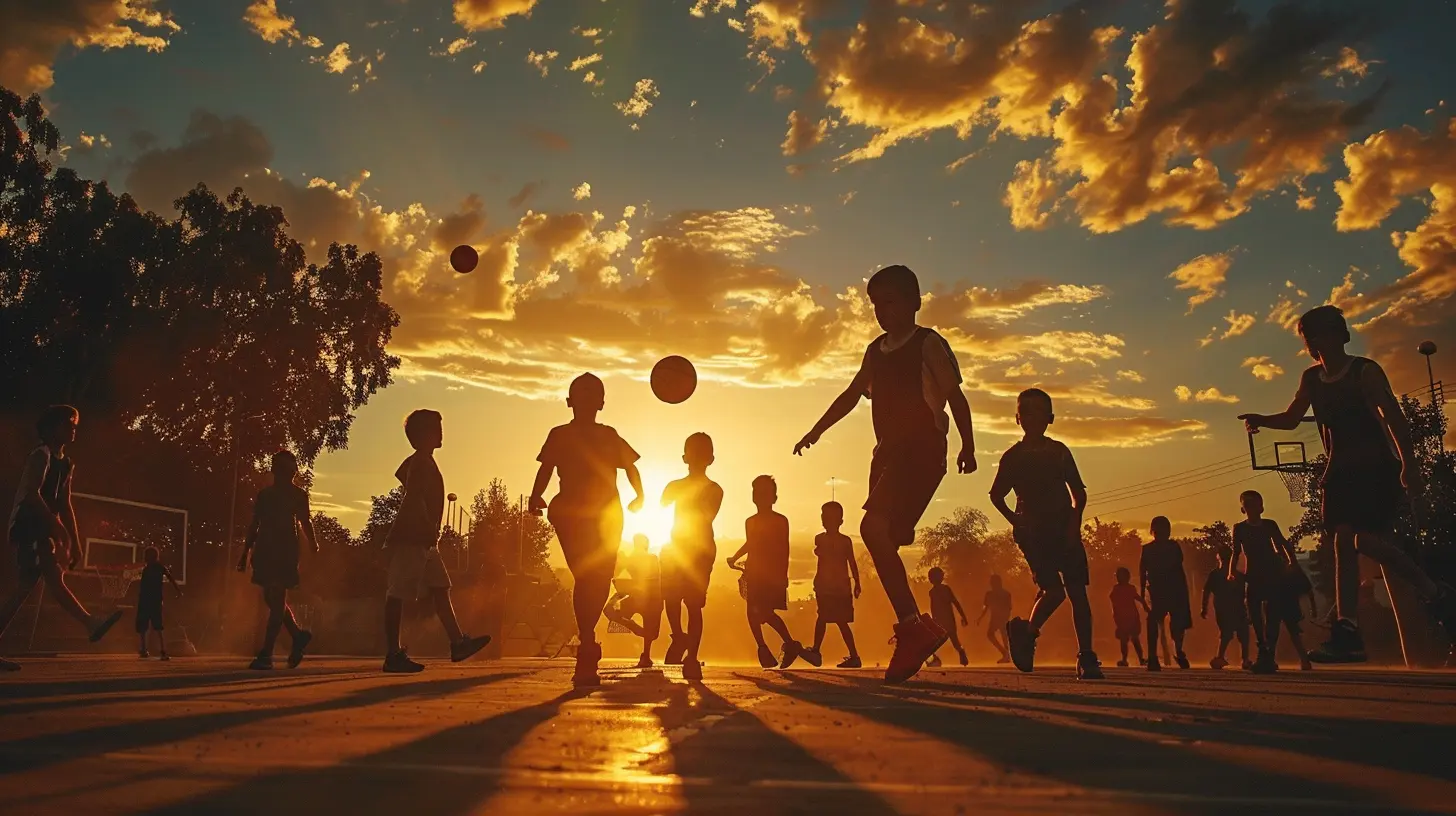How Youth Sports Build Leadership Skills in Children
21 June 2025
Sports aren’t just about winning trophies or scoring the most points. For kids, they’re a playground for life lessons—especially when it comes to leadership. Whether dribbling a basketball, sprinting down a soccer field, or strategizing in a baseball dugout, youth sports shape kids into confident, responsible leaders.
But how exactly does that happen? Let's break it down.

The Role of Youth Sports in Leadership Development
Think about some of the world's greatest leaders—many of them have athletic backgrounds. Why? Because sports create real-life pressure scenarios that help kids develop skills like decision-making, teamwork, and accountability.When kids step onto a field, court, or track, they face challenges that push them to grow. They learn to communicate, inspire teammates, and take responsibility for their actions—hallmarks of strong leadership.
Building Confidence Through Competition
Leadership starts with confidence. And there’s no better confidence booster than playing sports.- Kids overcome fears by taking risks in games.
- They learn resilience by bouncing back after losses.
- Success in sports reinforces self-belief, making them more willing to step up in leadership roles.
A child who once hesitated to speak up in class might suddenly find their voice when leading their soccer team onto the field. That confidence carries over into other areas of life, from academics to social interactions.
Teamwork: The Foundation of Leadership
No leader operates in isolation. One of the first things youth sports teach kids is how to be part of a team.- They learn to collaborate with different personalities.
- They understand the importance of supporting teammates.
- They recognize that success comes from collective effort, not just individual talent.
Leadership isn’t about being the loudest or the best player—it’s about helping others succeed. Sports instill this early on, ensuring kids grow up valuing collaboration.
Decision-Making Under Pressure
Life throws curveballs, and so do sports. Every game presents kids with situations requiring quick thinking:- Should I pass or take the shot?
- Do I push forward or play it safe?
- How do I motivate my struggling teammate?
These split-second decisions sharpen a child’s ability to analyze situations and make choices under pressure—something every strong leader must do.
Handling Success and Failure Gracefully
Winning feels great, but losing teaches the real lessons. Sports teach kids to handle both with grace:- Winning teaches humility. No one likes an arrogant leader.
- Losing builds resilience. Great leaders don’t crumble under setbacks.
These experiences shape kids into leaders who can navigate highs and lows with composure and maturity.
Communication Skills: The Heart of Leadership
Strong leaders must know how to communicate effectively. Youth sports place kids in situations where clear communication is essential.- They have to relay game strategies to teammates.
- They learn to give and receive constructive criticism.
- They practice motivating others during tough moments.
These skills translate to everyday life—whether leading a group project in school or later managing a team at work.
Learning Responsibility and Accountability
One of the most valuable lessons in sports is accountability. Kids learn early that their actions impact the team.- Missing practice affects team performance.
- Not following instructions can lead to mistakes.
- Taking responsibility for errors builds integrity.
Great leaders own up to their mistakes and work to improve. Sports teach kids this from an early age.

How Different Sports Foster Leadership Skills
Every sport emphasizes leadership in its own way. Let’s take a look at how different activities contribute to leadership development.Team Sports: Learning to Lead in a Group
Basketball, soccer, football, and baseball require kids to work as a unit. They develop:- Collaboration: Understanding how to function as part of a team.
- Strategic Thinking: Learning to anticipate and adjust to game situations.
- Motivation: Encouraging and uplifting teammates.
Individual Sports: Self-Discipline and Personal Growth
Sports like tennis, swimming, and gymnastics require a different kind of leadership—self-leadership. Kids develop:- Self-Motivation: Pushing themselves to improve.
- Resilience: Bouncing back from personal mistakes without relying on a team.
- Accountability: Owning their successes and failures.
Martial Arts and Leadership Through Discipline
Martial arts like karate, judo, and taekwondo emphasize respect, discipline, and mental toughness. Kids learn:- Patience: Understanding that progress takes time.
- Respect: Treating opponents and instructors with honor.
- Discipline: Following structured routines and commands.

Real-Life Benefits of Leadership Skills Learned in Sports
The leadership skills gained in youth sports aren’t just useful during games—they provide lifelong advantages.- Academic Success: Confident kids perform better in school, participate in discussions, and take initiative.
- Career Growth: Future employers value teamwork, communication, and decision-making.
- Social Skills: Leaders naturally attract friendships and build strong relationships.
When children develop leadership qualities through sports, they set themselves up for success in all aspects of life.

Parents’ Role in Encouraging Leadership Through Sports
Parents play a major role in how effectively a child develops leadership skills in sports. Here’s how you can help:- Encourage Participation: Let your kids try different sports to find what they love.
- Emphasize Effort Over Winning: Teach them that leadership is about growth, not just success.
- Model Good Leadership: Show them what strong leadership looks like through your own actions.
- Support Without Pressure: Let them enjoy the game rather than feel the weight of expectations.
Final Thoughts
Youth sports provide the perfect training ground for the leaders of tomorrow. From building confidence to mastering teamwork, the lessons learned on the field, court, or track shape kids into capable, motivated individuals.So, whether your child is scoring goals, making key plays, or simply cheering on teammates from the sidelines, they’re learning leadership—one game at a time.
all images in this post were generated using AI tools
Category:
Youth SportsAuthor:

Uziel Franco
Discussion
rate this article
2 comments
Dusk Kirkland
Youth sports serve as a microcosm of life, teaching children resilience, teamwork, and accountability. Through challenges and triumphs, they cultivate leadership skills that transcend the field, shaping character and preparing them to navigate the complexities of adulthood.
October 28, 2025 at 11:46 AM

Uziel Franco
Absolutely! Youth sports provide invaluable life lessons, fostering resilience, teamwork, and accountability that are essential for personal and professional growth.
Gabriella Pratt
Youth sports cultivate teamwork and resilience, key traits for leadership.
June 27, 2025 at 4:24 AM

Uziel Franco
Absolutely! Youth sports inherently foster teamwork and resilience, essential qualities that shape strong leaders both on and off the field.


